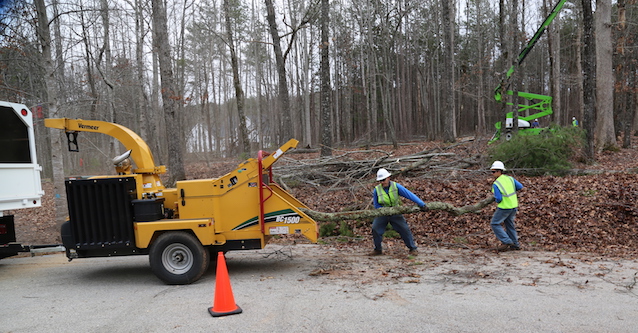Going lean. That’s a phrase you may have heard before but aren’t exactly sure what it means.
Gary Coppock can help you understand. He is senior director of continuous improvement at Vermeer Corporation and an expert on lean strategies. He helped provide the answers below to give you the basics on lean. Check back later this month for an article on a tree care company that went lean and saw big benefits.
What is lean?
Lean is a set of principles aimed at eliminating waste and making better use of resources with a goal of increasing productivity.
Lean principles have traditionally been used in the manufacturing industry, but they are becoming more common in other areas of business. Vermeer, for example, first implemented lean in its manufacturing plants factories in Pella, Iowa, years ago but soon adopted lean principles in engineering, maintenance, finance and even employee recruiting.
What are the benefits to my company?
By eliminating waste, the goal is to improve efficiency and productivity. A company could reduce the time it takes to perform a given activity or reduce the number of hours or people it takes to perform that activity. Any time or people that are freed up could be used in other areas of the business.
What’s the process of going lean?
Lean starts with learning what waste is, how to identify it and how to eliminate it. This is done through observation, talking with people, collecting data and understanding where the pain points are. Often, a Kaizen event is held to gather this information.
What is a Kaizen event?
Kaizen is Japanese for “improvement.” A Kaizen event is a structured activity that typically lasts one week. It focuses on a particular process with specific measurable goals to achieve. The “particular process” part is important. Going lean does not start with wholesale changes to everything a company does. Instead, a specific process is reviewed. Examples include the layout of a maintenance shop, how inventory is organized, jobsite workflow or financial processes.
When Vermeer hosts a Kaizen for a customer, a Vermeer continuous improvement (CI) manager leads the event, while also working closely with the contractor and the local dealer. The CI manager will help complete the following activities: observing to understand how the company currently does things and where the pain points are, talking with people, collecting information — basically, identifying waste.
Then a plan is developed to eliminate the waste. Standards are created to sustain the improvements and to train employees to be able to see wasteful processes and look for opportunities to make improvements.
Will Vermeer help my company go lean?
Contact your local Vermeer dealer and ask for more information. Vermeer Corporation works with dealers to review opportunities on a case-by-case basis.
